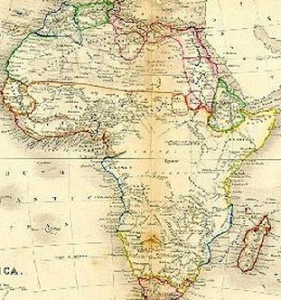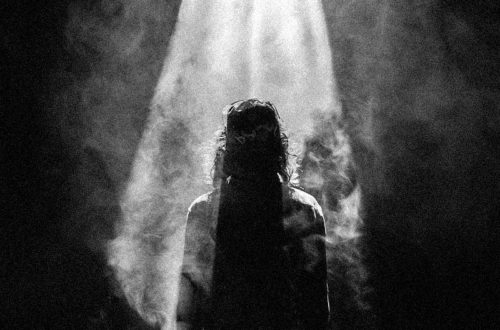two worlds
“I saw all those people at the bus stop in London, waiting to go to work. I rather take my chance in Africa again than have to go to work every day by bus.” – Dr. Nicholas Garrigan, The Last King of Scotland by Giles Foden.
‘T.I.A.’ was the first phrase I learned as I exited Jomo Kenyatta International Airport in Nairobi, Kenya. “This is Africa.” It was used to describe the chaotic, unorganized circumstances of the African continent and soon became the continuous excuse when things were not going according to plan. As I stepped out into the balmy night air and watched the perilous, anarchic traffic of the city I could see how the slogan evidently applied. Wasn’t it just a few short hours ago when I stood on a street corner in London watching people head off to work on the double decker buses? I recalled their business suits, brief cases and ringing cell phones. All of it was a common, daily prospect, being as I’m from Philadelphia. All of my life I had grown up in the prestige and advancement of western culture, until the moment I stepped off that British Airways 777 into a planet of its own. What I witnessed during my time on that resilient, dying continent has forever resonated in my being. I couldn’t believe that just a short plane ride away such ghastly realities actually existed. I had heard it said numerous times: “Well that is Africa. There’s no comparing the two worlds.” And I pose the question: “Why not?”
I leaned back in my seat onboard the British Airways plane. It was an especially relaxed and smooth flight. I place my headphones on and turned on the small television on the back of the seat in front of me. After about fifteen minutes of watching Everybody Loves Raymond, I switched the channel to the radar screen to see the plane’s location. It was the Sudan. My heart leaped into my throat as I took off the headphones and pressed my face against the window. How could I sit back and act like nothing was happening bellow me when I was fully aware of the genocide that was occurring at that very moment thirty seven thousand feet beneath. I peered around at the people onboard. Did any of them know? Did they even care? How could they not? Everyone seems to care about the holocaust of the 1940’s what made this any different? Already my comparing of these two worlds was reeling and the conclusion I was quickly drawing was an unconcerned, preoccupied western world, a world in which I was a part of.
After arriving in Nairobi, my group and I took off toward the guest house. This was going to be a mission trip unlike any other. Driving was a nightmare. I sat up front with our driver David on the left side. The rickety matatu van sped into the street just inches away from collision with another van. It was promptly realized that there were no real rules in this city. No set speed limit or traffic signs that anyone seemed obliged to follow. It was a pandemonium and disorder that awed us all and made us hold on for dear life. In Europe and America there are traffic laws one must obey or else consequences will ensue. In Kenya, there didn’t seem to be any penalty for there were no actual regulations to follow. On all sides of these deficiently paved roads were what appeared to be bombed out infrastructure. I flashed back to my drive to Philadelphia International Airport from my home. All the houses and skyscrapers all neatly organized; a symbol of western innovation. Yet there I was, in the midst of the inclusive contrary. If only my comfortable friends back in Delaware County could see this, I thought to myself.
In the year 2006 it would seem inconceivable that human beings lived in such destitute, filth, and poverty. My first visit to the Kibera slums churned my stomach inside out. As far as the eye could see stood rusted, broken tin roofed shacks, their walls constructed solely of fecal matter, dirt, branches, slabs of metal and garbage. The scent of dead, burning animal carcasses, feces, and raw sewage hung in an invisible haze above Kibera. This was community, and home to millions of human beings just like me. In the distance I could see Nairobi’s skyline. The contrast between the two worlds right next to each other was rather extraordinary. I thought about my house and the homes that surrounded it, the aroma of autumn’s fallen leaves, the homes of brick and siding, and of course the cost to live in such an area. T.I.A. I thought to myself, as I wept silently while a small child stood picking through waste and manure. This was the reality I had been oblivious, naïve, and ignorant of all of my life.
Resilience: re-sil-ience, noun: 1.) The power or ability to return to the original form, position, etc., after being bent, compressed, or stretched; elasticity. 2.) Ability to recover readily from illness, depression, adversity.
This was what made all the difference. I had stumbled upon a brilliant discovery! The children of Africa had something so exceptional, so matchless, that it would leave any westerner utterly dumbfounded. Amidst their atrocious conditions their resilience showed vivid like the blistering equatorial sun above them. Their attitude and outlook on living altered and inspired me, and I have never perceived life the same since. The poorest people on the face of the earth had taught me something I would never learn in any prominent western text book or university. They were truly the richest people I had ever met.
I still raise the question why we deem Africa as a place that we cannot compare our society to. Why must it be a world of its own? A dying continent surrounded by a distant, apathetic, contented world. Will we always settle for the term: “T.I.A.” or can something in fact be done about the crises? After experiencing both worlds for myself I can honestly say I rather take my chances again in Africa than have to go to work every day by bus.
I’d rather take my chances again here

